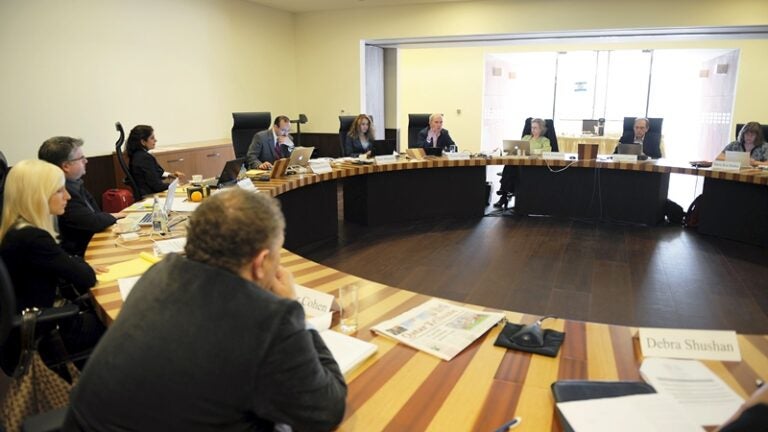Environmental Studies, Focused Discussions, Regional Studies
The Nuclear Question in the Middle East Working Group II

On January 9–10, 2011, CIRS concluded the second meeting of its “Nuclear Question in the Middle East” working group. The working group participants were invited back to Doha to deliver their chapter submissions and to critique each others’ findings and conclusions. The papers will be collected by CIRS in an edited volume titled, The Nuclear Question in the Middle East (Oxford University Press/Hurst, 2012). Seven international experts on the field discussed a variety of topics related to the study.
The participants stated that nuclear energy will always be considered of dual character and although many countries claim that they will establish a peaceful civilian program, there always remains suspicion that the program can be used for purposes of proliferation. Because a civilian nuclear program can be modified into a military one regardless of the original intention, there are a number of strict international nonproliferation laws and treaties that countries must adhere to in order to allay international suspicions.
Deliberating different models of regime survival strategies, the participants indicated that these have a bearing on why some countries have nuclear programs, while others steer clear of such projects. According to such “nuclear logics,” countries that wish to internationalize and integrate into the global economy by attracting foreign investment tend to avoid acquiring nuclear capabilities. Inward looking models, however, tend to want to acquire nuclear programs as they are less dependent on the global economy and as such do not adhere to international treaties. Further to macro level analysis of states’ nuclear ambitions, the participants also discussed the more detailed minutiae of such projects. As part of this analysis, the participants spotlighted the social psychology and the role of individual leaders in nuclear decision-making. Thus the group concluded that personal characteristics of decision-makers are key variables in understanding why and when states pursue nuclear power.
The nuclear programs of many countries of the Middle East were presented as case studies, including Israel, Egypt, Libya, Turkey, Iran, and the UAE. Countries such as the UAE, for example, cannot rely on their own oil supplies for their high energy intensive petro chemical and water desalinization industries. The energy and electricity demands in these countries are extremely high. Many argue that these countries must pursue a combination of hydrocarbon, renewable energy sources such as hydro and solar, as well as nuclear energy in order to meet their needs. In order to be in full transparency, the Abu Dhabi nuclear power program has been established in accordance with international treaties and protocols and by openly inviting foreign know-how and observers.
Concluding the second day, the participants discussed some overall themes that emerged from the meeting and a general theoretical overview of the nuclear issue in the Middle East. As an overarching framework, the chapters will address the issue of Middle East proliferation/nuclearization within the scope of the Iranian and Israeli shadows as well as the opaque relationship between civilian and security programs.
Participants and Discussants:
Zahra Babar, Georgetown University School of Foreign Service in Qatar
Avner Cohen, Woodrow Wilson International Center for Scholars
John T. Crist, Georgetown University School of Foreign Service in Qatar
Mehran Kamrava, Georgetown University School of Foreign Service in Qatar
Mustafa Kibaroglu, Bilkent University
Thomas W. Lippman, Council on Foreign Relations and Middle East Institute
Giacomo Luciani, Gulf Research Center
Mari Luomi, Finnish Institute of International Affairs
Suzi Mirgani, Georgetown University School of Foreign Service in Qatar
Maria Rost Rublee, University of Auckland
Debra Shushan, Georgetown University School of Foreign Service in Qatar
Etel Solingen, University of California, Irvine
- Click here for the working group’s agenda
- Read more about the research initiative
Article by Suzi Mirgani, CIRS Publications Coordinator